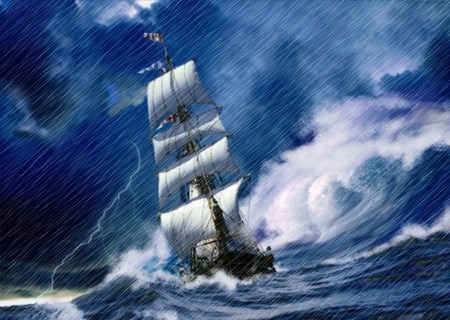True north
Since 400 AD, the North Star has helped sailors stay on course by revealing true north amidst the chaos of the high seas. Known formally as Polaris, the North Star is "special" for three main reasons:
Brightness: one of the brightest in the night sky.
Steadfast position: due to its alignment with Earth's axis, it consistently appears true north.
Alaska state flag: while star iconography is common on US state flags (14 of 50), the North Star is only specific star to be depicted on a state flag:
Popularity in Silicon Valley
When euphoria combines with oozing metaphorical potential, its not surprising that Silicon Valley seized this celestial icon to create the North Star Metric (NSM) to symbolize the single metric most indicative of customer value.
Simple. Straight forward. Singular.
Due to these attractive qualities, a thoughtfully-nominated NSM can be particularly useful in 1) goal setting, 2) organizational alignment, and 3) product development—areas we'll expand upon in a future post.
No business runs on one metric
But the truth is, no business runs on one metric. Can a North Star Metric be useful for goals and alignment? Absolutely. Like a sea-bound armada, by all means lets trim our sails toward the North Star. But when it comes time to do the work, operational complexity sets in:
Customer acquisition cost
Dollar-based net retention
Cohort subscription expansion
Churn rate
Cash burn rate
Lifetime customer value
AE ramp rate / productivity
Unit economics
Net working capital
F*$^%# this just got hard
And before you know it, the naivety of a single metric is awash in operational winds and waves.
So what does a good captain do?
A good captain 1) inspires the crew, and 2) sets achievable goals. Of course, good/smart goals will inevitably include metrics, but goals are more inspiring than simply making a single number get bigger.
The North Star is actually three stars
Meanwhile, perhaps Mother Nature was hiding the answer from us the whole time. Did you know that the North Star is actually three stars? It's true. Polaris is in fact a multiple star comprised of Polaris Aa, Polaris Ab, and Polaris B. The three Polaris stars orbit happily some 400 light-years away (or 123 parsecs for the space junkies out there).
So instead of just ONE north star we have THREE, and instead of North Star Metrics we might consider North Star Goals. Stephen Covey calls these Wildly Important Goals, or WIGs.
3 North Star Goals
What are your 3 North Star Goals? What are the 3 biggest things your company need to accomplish this year? What are the input and output metrics that will determine goal attainment, and what are the prioritized initiatives that will thrust you towards true north?



